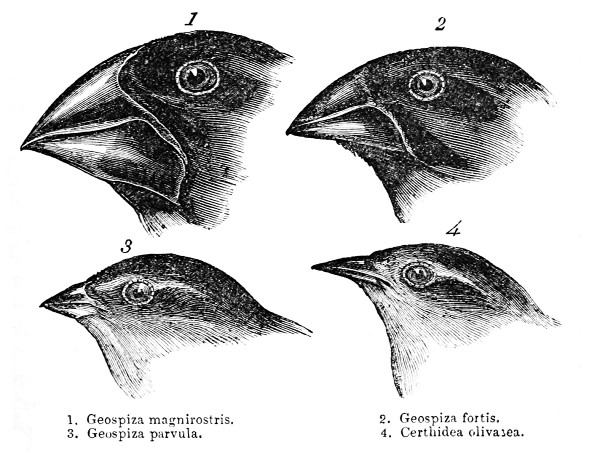Darwin Day: Why teach evolution?

Darwin Day is February 12, and the National Center for Science Education answers its own question rhetorically by asking
[s]cientists, authors, academics, and classroom teachers [to] describe the beauty of evolution and the critical importance of evolution education for our nation’s young people as part of [their] #WhyTeachEvolution campaign.
At this writing, a baker’s dozen (counting Executive Director Ann Reid) have responded to the challenge and posted short essays in answer to the question. Interestingly, the main page shows photographs of the contributors and the titles of their essays, but not their names. (I kind of preferred the good-looking 77-year-old man with the nice beard.)
The essays are all short, and I will not regurgitate them for you. They begin with an introduction by Ms. Reid, in which she asks,
What [do flat earth-iness and post-truthism] have to do with evolution? Like the roundness of the earth, whether evolution is true or not may not seem to make a very big difference in our daily lives. So what if species were all created at once 10,000 years ago, or have been evolving for billions of years? Does that really matter on a day-to-day basis? Reader, it does.
In our “Why Teach Evolution?” series of essays, you will find many stories that illustrate how the truth of evolution matters in practical terms—how understanding the concept helps us treat cancer, predict disease outbreaks, grow more food with fewer resources, create new life-saving drugs and more efficient industrial processes, and protect precious ecosystems. Understanding evolution helps us predict how climate change will affect crops, wildlife, and human health. And understanding evolution will help us predict what kinds of human actions will be most helpful to preserving the living web of life that sustains us all.
So understanding evolution is of vast practical importance. Any student who does not get a chance to learn about evolution will be greatly handicapped in any effort to contribute to the solution of myriad practical problems, whether as a research scientist or as an engaged citizen.
Other essays by PT’s own Joe Felsenstein, scientific author James Gleick, NCSE Board President Ken Miller, NCSE Teacher Ambassador Rebecca Brewer, Jonathan Losos of Washington University, Briana Pobiner of the National Museum of Natural History, President-Elect Elizabeth Allan of the National Science Teaching Association, former creationist and NCSE Graduate Student Outreach Fellow Laurie Luckritz, microbiologist Jonathan Eisen of the University of California, Davis, dinosaur expert Steve Brusatte of the University of Edinburgh, and theologian John F. Haught of Georgetown University, not to mention the students of NCSE Teacher Ambassador Blake Touchet, to a large extent amplify or expand upon the introduction. I will leave it to you to look at the pictures and decide who is who.
Finally, I was grateful for the brief essay by Prof. Haught, which differed markedly from the others. He notes that
students need to understand the story of life on our planet accurately. By ignoring evolution, schools and teachers would be leaving out the vital links that tie us and other living species to natural history. Failing to comprehend these links leads to a shallow understanding of ourselves as well as the universe that gave birth to us.
As a theologian I must add that ignoring evolution leads also to a shallow understanding of God. I am aware, of course, that Darwin’s story of life is hard for many religious people, especially Christians and Muslims, to swallow—at least at first. …
He concludes,
Ministers and other religious educators, and not just students, need to become informed about evolutionary biology. Furthermore, there are many theological resources now available that can help students—outside of the classroom—integrate their religious beliefs with a sound scientific understanding of Darwin’s revolution.
I am a nontheist, but I consider the existence of religious people to be in empirical fact; given that fact, I cannot disagree in any way with the sentiment expressed in Prof. Haught’s essay.
